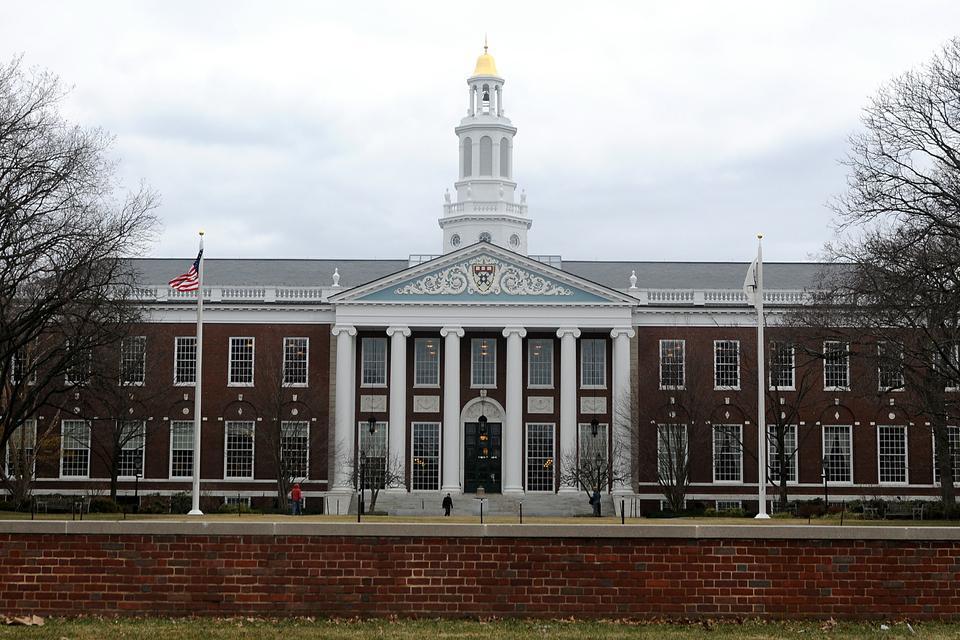
Courtesy of the Harvard Crimson
Following more than two months of deliberation, Harvard announced Wednesday that the university’s house masters will now be called faculty deans.
Harvard’s Faculty of Arts and Science Dean Michael Smith made the announcement in a Wednesday evening email to the university’s undergraduates and professors. As at Yale, some students at Harvard have said the word “master” — which was previously used to refer to the heads of Harvard’s undergraduate residential houses — has associations with slavery and discrimination. In this message, Smith also addressed criticisms of the decision to change the title at all and emphasized that he has not seen any direct connection between the term house master and slavery. Still, he reaffirmed the university’s decision and said the title “dean” is the most appropriate for the position in this time and place.
“Titles can and should change when such a change serves our mission,” Smith wrote in the email. “I want to emphasize that a decision to change does not necessarily mean that what came before was wrong.”
Smith said some people have criticized Harvard for lacking a “proper appreciation” of the history of the title at the university, while others said the administration reacted too quickly to student demands. However, Smith said these claims could not be “further from the truth.”
Debates over whether to change the title of “house master” at Harvard have spanned several years, but the recent decision to abolish it altogether can be traced to protests last fall about race and discrimination on college campuses. In particular, conversations about the title gained new strength after pieces of black tape were found defacing the portraits of some African-American professors at Harvard Law School on Nov. 18.
Liana Henderson-Semel, a Harvard freshman, said campus protests emerged about a week after the incident.
“In my opinion, Harvard responded so quickly to the call to change the title of house master because of this recent act of racist vandalism,” she said. “Despite disagreeing with Harvard’s decision to change the title, I think that the administration handled the situation well.”
Indeed, unlike at Yale, Harvard moved quickly in deciding whether to change the title of master: In December, Dean of Harvard College Rakesh Khurana announced that house masters had unanimously agreed to eliminate their title and that college and house administrators would subsequently meet to discuss next steps. Only now, however, has it settled upon a replacement title.
Meanwhile, the Yale Corporation continues to debate whether to maintain the title of master after discussing the subject at its February meeting.
University Spokesman Tom Conroy said that while Yale “respect[s] other schools’ choices regarding titles, Yale’s discussions are not concluded and there is nothing to add at this time.”
Yale College Dean Jonathan Holloway declined to comment, citing ongoing Corporation deliberations. University President Peter Salovey did not respond to a request for comment.
Silliman Master Nicholas Christakis said while he “has no idea what the Corporation will do,” he has been told that Harvard’s college deans — whom he likened to Yale’s residential college deans — will change their titles to assistant dean, allowing for house masters to be called faculty deans.
“I wouldn’t object to that change here at Yale,” he said.
Referring to an email he sent to the Silliman community in August, Christakis said an issue central to the potential change of the title of master is the lack of practical replacement titles. Alternatives such as lord, rector and chancellor would not fit, he wrote in August, and dean is already taken. But by changing deans to assistant deans, he said, the problem of how to address masters at Yale could be solved.
Still, Christakis said Yale should make its decision independent of the actions of other institutions.
“We’re Yale University — we can make our own decisions about what to do,” he said.
But Calhoun Master Julia Adams questioned the logistical practicality of adding yet more deans to Yale’s administrative structure.
“We have 12, soon to be 14 residential college deans,” Adams said. “If we followed Harvard’s model … we would certainly be full up [with deans].”







